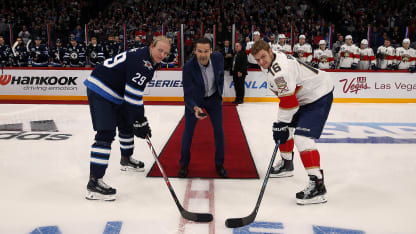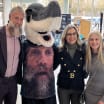The Jets chose Selanne No. 10 in the 1988 NHL Draft but he didn't make his NHL debut until 1992. He scored an NHL rookie record 76 goals and 132 points in 1992-93.
"We gave him a conditioning program here and watched him and made sure he was ready," Suhonen said. "And he was ready. Timing is everything, especially with young players.
"Some develop fast, some slower. Skills can be very good but intellectual and emotional levels can be different. So you have to be very careful that the player is intellectually and emotionally ready to change and face the culture."
Suhonen says the evolution of players in Finland has been fascinating to follow as the end game has gone from reaching Finland's top professional league (Liiga) and playing for the national team to reaching the NHL as soon as possible.
"We have a very good development system for young players but that has changed in the last 20 years," he said. "Now, the main goal is the NHL. That's a big change... and of course that means that some players go too young and they are not ready. Every young player is different."
Although the new Finnish breed has captivated Suhonen, he is also excited to relive some old memories with the Jets during their visit here; Suhonen was an assistant with them from 1989-1993. He made the trip from his home in Forssa, about 70 miles outside the Finnish capital, to see many old friends, particularly at the alumni gathering Winnipeg hosted Friday.
"Of course, it's very nice to see Winnipeg because my time there was very great there, with good memories," he said. "No doubt about that."
Despite interests outside of hockey, including music, theater and public speaking, Suhonen said he still sees coaching as his daily driving force.
"I can still coach," said Suhonen, whose last coached competitively with Austria's national team two years ago. "I miss it. Once a coach, always a coach. I like to think, to read. I don't think I belong in offices. That's not me.
"Me is in the dressing room and on the ice with players. Human contact. We have so many computers today, the internet and Facebook and Twitter, so the human contact is even more important in today's world. And that's coaching."


















